Forms of employment for SAP consultants in Poland
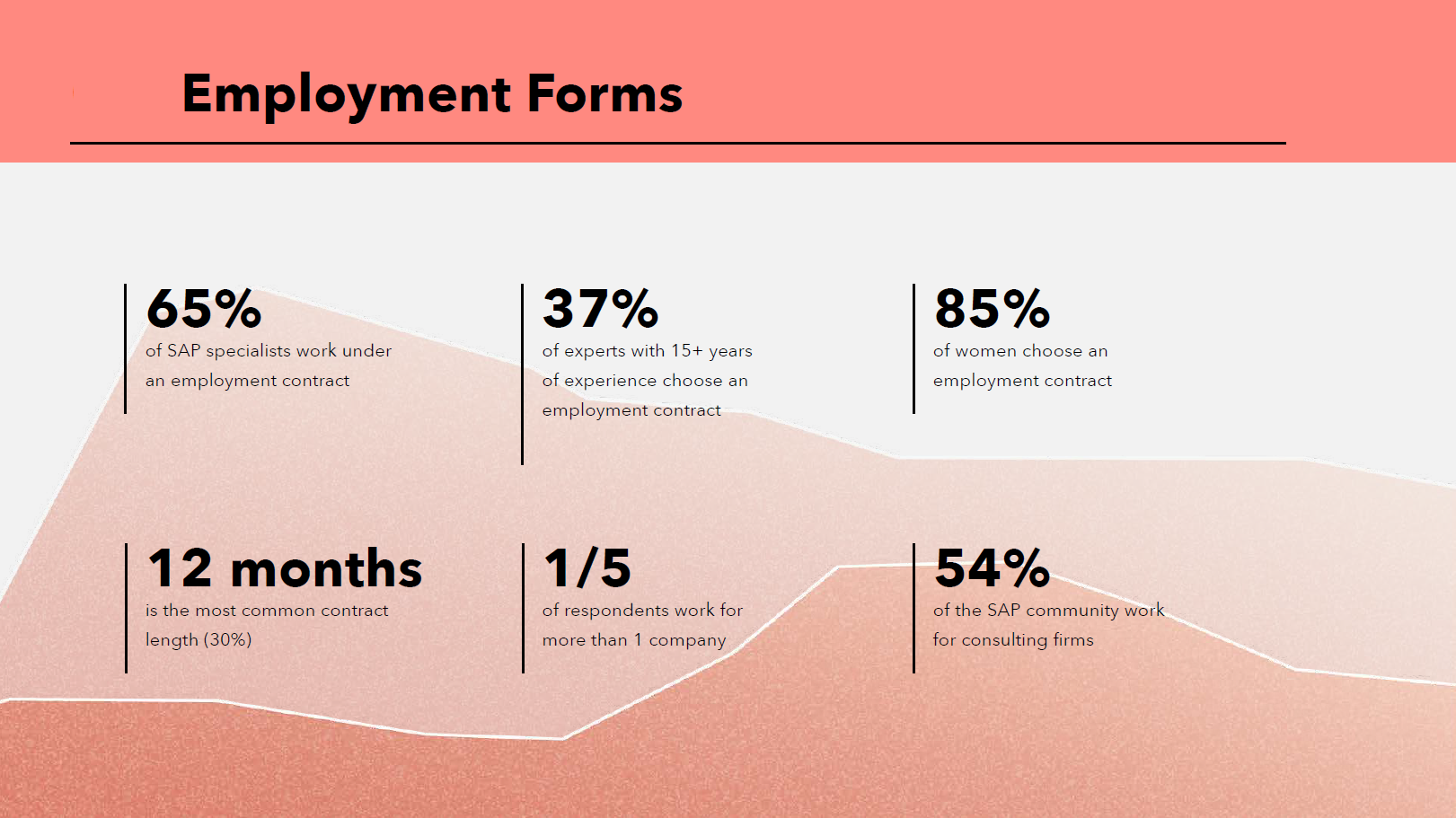
An employment contract is the dominant form of employment for SAP specialists. It is most commonly chosen by women (81.5% of survey participants) and juniors. With experience (and increasing earnings), interest in alternative types of contracts grows. The increase in labour costs drives both sides to co-operate through B2B partnerships via consulting and outsourcing firrms or through “internal” B2B, which is a long-term and direct collaboration between the company and a self-employed consultant.
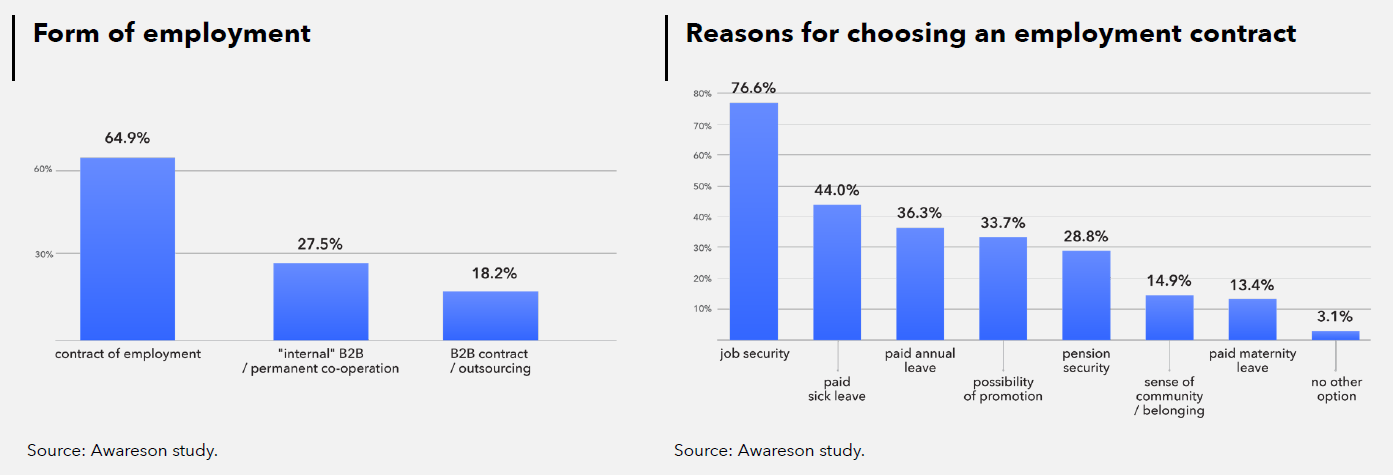
However, over the past years, it is evident that both companies and candidates are increasingly leaning towards ‘insourcing’, or building internal teams. Employers rightly see this as a way to reduce turnover and build more effective long-term relationships with employees. Contracts are chosen where there is limited time to build a project team and limited time to complete tasks.
From the perspective of a freelancer who has been working on contracts for 15 years (previously about 8 years on a permanent contract), I would not change this form of work for any other. Globally, the choice of employment form depends on many factors, including:
• Psychological resilience to the instability of professional situations. An employee on a permanent contract always has a more stable and secure professional situation than a contractor. Personally, I have participated in a project where the client laid off the entire team of 150 consultants overnight. The employees of that company were covered by permanent employment contracts, so they did not feel the change as much as I did. Some people find it difficult to cope with such situations, while others consider it a normal professional risk.
• Financial factors – A contractor earns more for the same work than an employee on a permanent contract (there are no such tax burdens and is not a constant financial burden for the employer). This is the reward for the risk.
• Independence and flexibility – A freelancer sets their own terms for onsite/remote work. They also have greater flexibility in choosing projects.
• Professional development – Here, an employee on a permanent contract definitely benefits, as they have access to training paid for by the employer. SAP knowledge is expensive. A freelancer has to self-educate.
Grzegorz Majewski
SAP FI/CO Consultant at Awareson
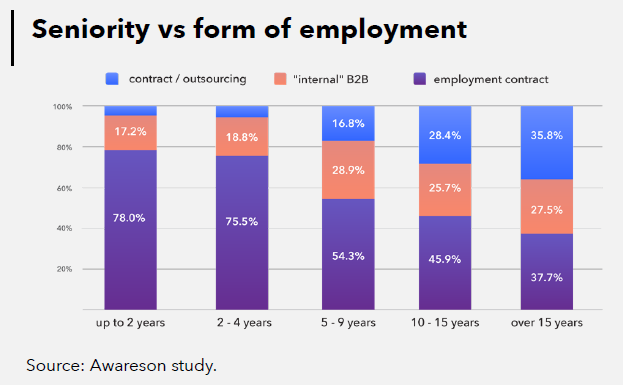
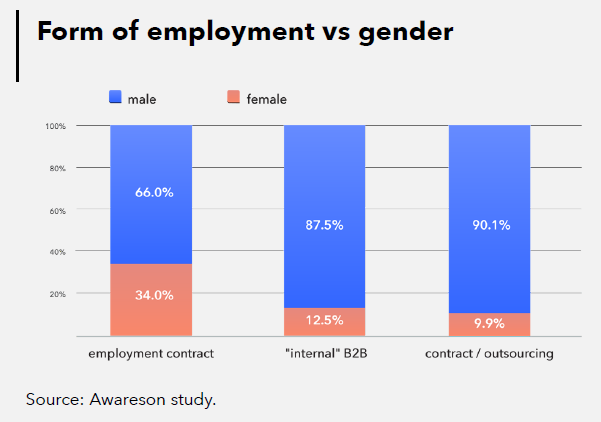
Contracts are most commonly targeted for a year, which results from budget planning in companies and the fact that implementation and migration projects are usually long-term.
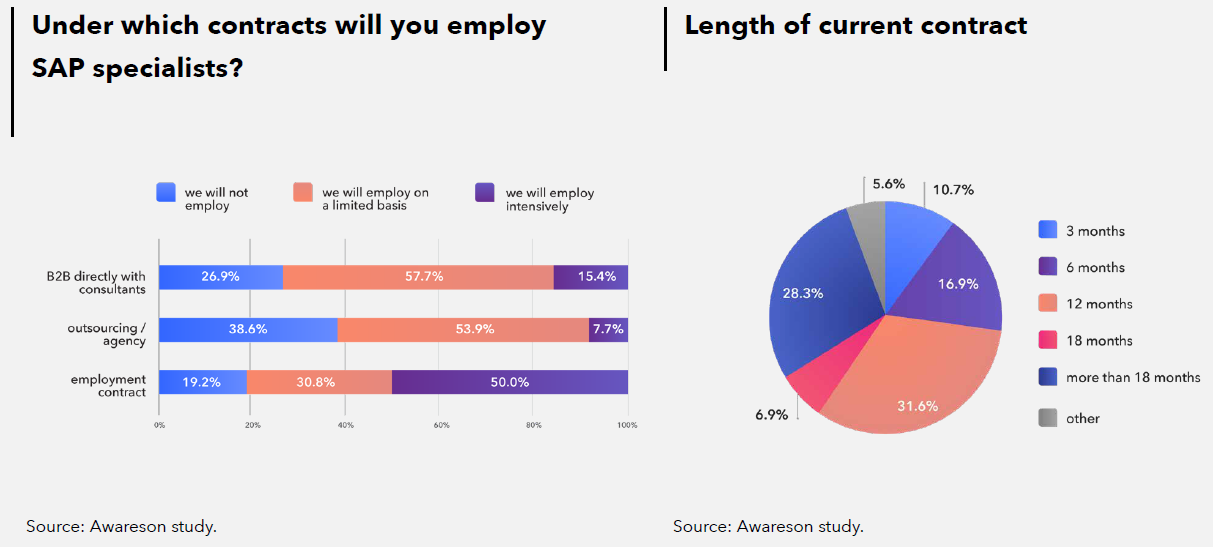
A significant 20% of respondents declare that they work for more than one company, which does not always mean simultaneously working on two or more projects. A substantial 54% of respondents are associated with consulting firms that carry out tasks for their clients, which somewhat automatically means co-operation with more than one entity. It is also common for experienced consultants to support several projects simultaneously, but within a limited time frame, such as a few hours per week. More than 40% of respondents work this way amongst experts.
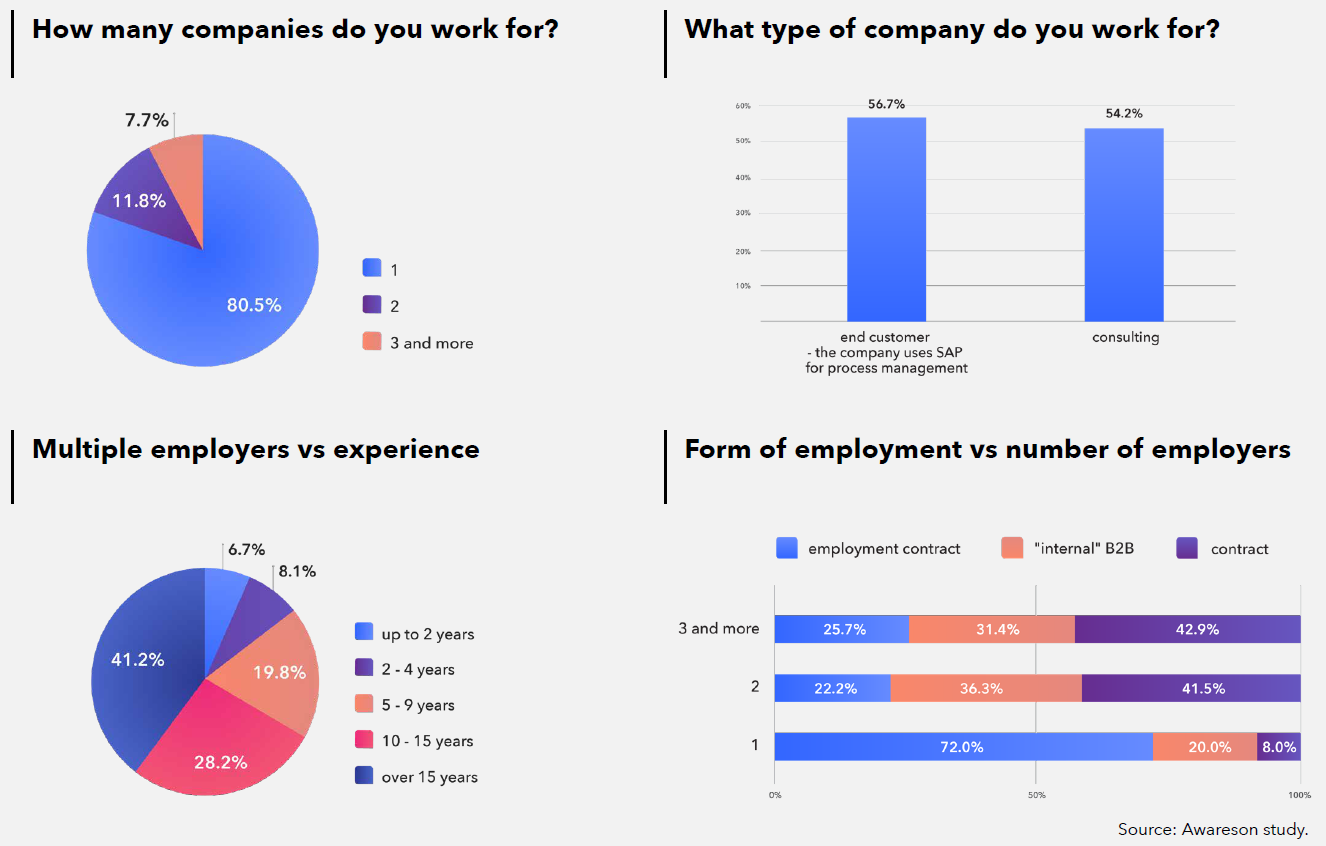
For a significant group of SAP specialists, the form of employment is secondary, so they declare an openness to change. This is particularly evident in the case of those employed under an employment contract, which stems from the frequent choice of this form of employment by younger people. In any case, the dominant motivation is an increase in salary, followed by career development.
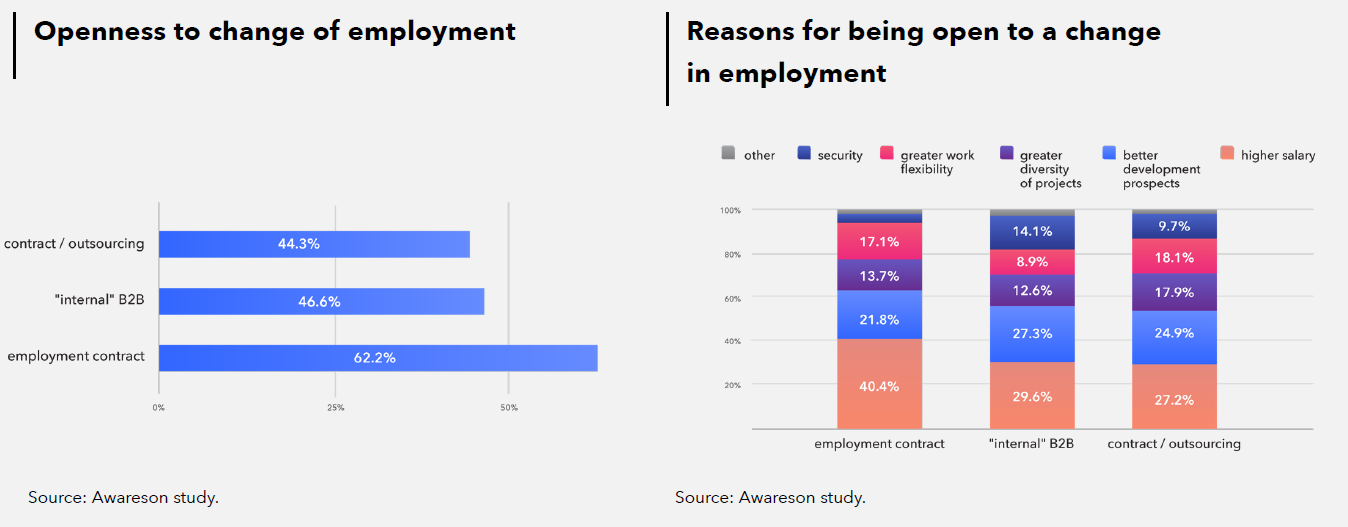
Want more information about the SAP community in Poland? Download our SAP Report 2024



